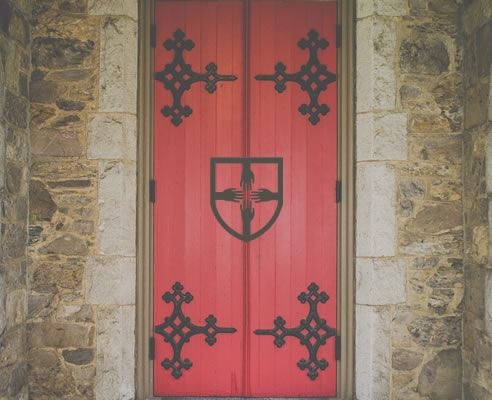Some years ago, a priest colleague of mine began a sermon on the Transfiguration by asking: “Can you think of a time when you knew that you were in the presence of something Holy? Something Holy that had something to say to you?”
As I mark the annual miracle of my daily deliverance from active addiction, I, along with the cloud of witnesses who have been transfigured by the grace that is recovery, can answer my friend’s questions with a resounding “Yes!” And “Yes!” Because, as I have learned, this was a scriptural way of stating the second step: “We came to believe that a Power greater than ourselves could restore us to sanity.”
In the early months of recovering from a devastating and humiliating bottom, I set myself (sic!) the task of trying to make things right. And then, at a meeting, I heard a fellow priest declare, “I have always believed in God. I was just never sure that God believed in me.” Boom! He was telling my story. Maybe the Holy did have something to say to me. Now. In my brokenness.
I was the dutiful child of a certain type of puritanical Scandinavian works-righteousness piety. In a nutshell, it was up to me to live with such rectitude that God would find me acceptable; that I would, somehow, be found worthy of the grace of restoration, of sanity.
In other words, I was a follower of Peter. Impulsive, mouth-open-before-brain-is-fully-engaged Peter. Poor Peter, who never really got the “be still and know that I am God” business. Quick-draw Peter – a sort of apostolic action hero. Peter always seemed to be saying, “What am I supposed to do?” From leaping into the lake to offering to construct a booth, Peter’s initial response, like my own, was to engage in pious busyness.
Like Peter, I leapt into problem-solving mode quickly because it helped me make sense of the chaos. At least that’s what I told myself. It allowed me the illusion—the delusion—that I wasn’t really falling down the well. But, to be honest it was all about control. And, in trying to think myself into a solution (before anyone found out, I hoped), I was just building booths on the deck of my own spiritual Titanic.
My vocation is one of talking. For me, living into recovery has been largely about learning to listen. A huge step for me was to learn to ask for help. I knew that I didn’t have the answers to everything, but somehow I thought I was supposed to; that I didn’t, meant that I was weak and incompetent.
I was told that I had to ask for help. And, perhaps more importantly, I had to listen to what people said. “Maybe that’s not the best idea you’ve ever come up with.” “This is what’s worked for me.” “You’re looking really peaceful these days!” And slowly, one day at a time, my life of activity with spiritual overtones is growing into a spiritual plan of action. First, always, I have to listen.
God’s imperative, “Listen to Him!” means to listen not only to his words, but also to his life. A life of the Holy coming down, all the way down, into the depths of my addiction, my brokenness, and my fear. In traveling to the cross, to the grave, and through the grave, Christ embraces and redeems all that is hard, difficult, and even despicable in life, in order to wrest life from death itself! Recovery is always possible.
If you wanted to construct a story about standing at a turning point, complete with an overpowering spiritual awakening, you needn’t look beyond the Transfiguration. For me, this year, the Gospel story is not so much about the vision of a dazzling Jesus, or of the presence of Moses and Elijah, or even of the ever-busy Peter. It is, today, about hearing the Holy who has something to say to me – to us. And then today, and each today that follows… listen.
Paul J.
August 2017
 In the early days of the Church, when the front door of the parish was painted red it was said to signify sanctuary – that the ground beyond these doors was holy, and anyone who entered through them was safe from harm.
In the early days of the Church, when the front door of the parish was painted red it was said to signify sanctuary – that the ground beyond these doors was holy, and anyone who entered through them was safe from harm.